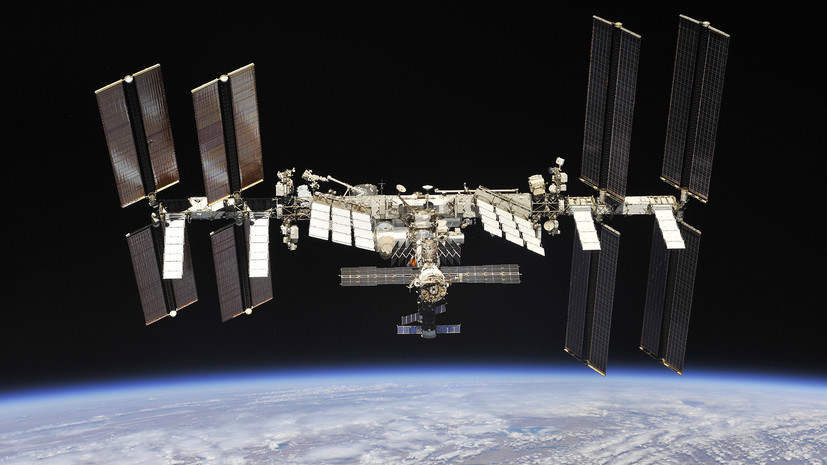On the Russian section of the ISS, a computer crashed. This was reported in the press service of "Roskosmos". It is noted that the incident will not affect the operation of the station.
“Indeed, the so-called software readiness of one of the three computers on the ISS has disappeared, in other words, the program crashed. To restore the computer to work it is necessary to restart it, ”the statement says.
The report emphasizes that the restart will be carried out on November 8, for “confidence in the reliability of the November docking with the Progress ship, the launch of which is scheduled for November 16. In this case, there is no need to change the computer, noted in the state corporation.
“This failure will not affect the work of the ISS. The standard cyclogram allows you to fly indefinitely on two channels, ”added the press service.
The last time the computers in the Russian segment crashed was June 13, 2007. The cause of the accident then became a short circuit due to condensate formed on the electrical contacts, as a result of which the secondary power sources of the computers failed. The consequences of the incident were eliminated.
Doubling the number of starts
The Progress MS-10 ship will have to deliver about 2.5 tons of cargo to the ISS, including fuel, refueling systems and water.
In total, in 2018, Roscosmos plans to launch 17 rocket launches. About this November 2, said the head of the state corporation Dmitry Rogozin. At the same time in 2019, this number will be doubled.
“If this year we have only 17 start-ups, then the next is more than 35. And ten of them are difficult,” RIA Novosti quotes Rogozin.
He clarified that by heavy rockets are meant nine “Protons” and one “Angara”. The launching of heavy rockets, Rogozin stressed, will have to help the Khrunichev Center, which develops them, to fix financial problems and start paying debts for overdue contracts. At the moment, the company's debt amounts to 111 billion rubles. The manufacturer will begin to pay penalties and fines for overdue contracts in 10 years, Rogozin added.
“We have agreed to shift penalties and fines by 10 years to the right,” he noted.
Rogozin stressed that Roscosmos over the next year and a half will focus on the restructuring of the rocket and space industry in Russia.
“We need a transition from the topic, when we made each spacecraft separate, special ... When you put out into production, this is a profitable economy, these are repeated technical and technological solutions, it is easier. Accordingly, you get quality and reliability, ”he said.
In addition, three holdings will be created. The first will be engaged in engine-building on the basis of NPO Energomash, the second in instrument making, and the third directly behind the rockets. The latter will be based on RSC Energia, the Progress RCC and the Khrunichev center.
“We pushed this reform, it will have a cardinal meaning of overcoming such a situation as accident rate, equipment failures, will help to win back the launch services market, which we have lost in many ways,” the head of the state corporation summarized.
The accident "Union-FG"
Recall that on October 11, the Soyuz-FG launch vehicle crashed with the Soyuz MS-10 manned transport vehicle. The reason was the abnormal separation of one of the side blocks of the first stage, which was caused by a sensor breakdown during the installation of the rocket at the Baikonur cosmodrome. This was stated on November 1 by the head of the commission investigating the incident, Oleg Skorobogatov. At the same time, he stressed that the emergency crew rescue system worked according to the plan.
“The emergency rescue system of Soyuz MS-10 TPK worked in accordance with the established logic. The crew acted in accordance with the requirements of the on-board instructions and instructions of the Flight Control Center, ”he said.
The Soyuz-FG missiles have been launched since 2001. Of the 65 starts, only the last was unsuccessful. At the end of 2019, after the launch of the remaining five missiles, Roscosmos will switch to the more modern Soyuz 2.1a, which has been flying since 2006. They were launched 28 times.

